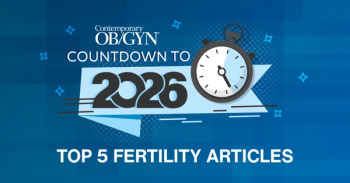
IVF for women with previous recurrent ectopic pregnancy
Women with previous recurrent ectopic pregnancy (EP) have a significantly lower risk of EP following in vitro fertilization (IVF), compared to women with previous single EP, according to a retrospective cohort study published in the journal PLOS One.
However, no significant differences were observed in the clinical pregnancy rate, miscarriage rate and live birth rate between the two groups.
In addition, the salpingostomy and salpingectomy therapies for EP did not significantly impact the incidence of recurrent EP after IVF.
The retrospective cohort study comprised women who underwent IVF/intracytoplasmic sperm injection (ICSI) treatments at the Reproductive Medicine Center, Sir Run Run Shaw Hospital, Hangzhou, China, between January 2016 and May 2020.
The women were divided into three groups: 457 women with a history of recurrent EP (the REP group), 912 women with a history of single EP (the SEP group) and 1,169 women as the control group with a history of intrauterine pregnancy (the IUP group).
The incidence of EP in the REP group after IVF treatment was significantly lower than in the SEP group: 2.4% vs. 6.8% (P = 0.011).
But the prevalence of EP in the REP group was similar to the IUP group: 2.4% vs. 2.1% (P = 0.830).
Furthermore, there were no significant differences in the clinical pregnancy rate, miscarriage rate and live birth rate among the three groups, nor was there a statistically significant difference in the recurrent EP rate between the salpingectomy and salpingostomy treatments.
Adjusting for maternal and treatment factors did not influence live birth rates for women with previous REP compared to women with previous SEP and those with IUP.
The odds of EP were 82.2% lower in women in the SEP group who had blastocyst transfer than cleavage embryo transfer: odds ratio (OR) = 0.178; 95% confidence interval (CI): 0.042 to 0.762 (P = 0.020).
The odds of EP were also more than six times greater in women who underwent double embryo transfer than single embryo transfer in the IUP group: OR = 6.260; 95% CI: 1.255 to 31.220 (P = 0.025).
“Our study is valuable because this is the first to provide evidence for the effect of a history of recurrent EP on outcomes of subsequent IVF treatment,” wrote the authors. “This is also the largest study of a population with previous recurrent EP.”
The validity of the study’s data is enhanced by the clinical and laboratory protocols from a single center, such as ovarian stimulation, embryo transfer technique, embryo culture system, embryo cryopreservation and thaw protocols.
The authors speculated that repeat surgical treatments for EPs may reduce the risk of EP.
More concrete, the study found that infertility duration for women with single EP was significantly longer than for women with recurrent EP. “This implies that a long attempt time to pregnant may play a role in the etiology of EP occurrence,” wrote the authors.
A consequence of women with tubal EP who elect surgery is damaged tubes, which may cause an alteration of the embryo-tubal transport and tubal environment, and thus a major reason for an increased incidence of recurrent EP.
__
Reference
Xue Y, Tong X, Zhang H, et al. Pregnancy outcomes following in vitro fertilization treatment in women with previous recurrent ectopic pregnancy. PLoS ONE. 17(8):e0272949. doi:.org/10.1371/journal.pone.0272949
Newsletter
Get the latest clinical updates, case studies, and expert commentary in obstetric and gynecologic care. Sign up now to stay informed.









